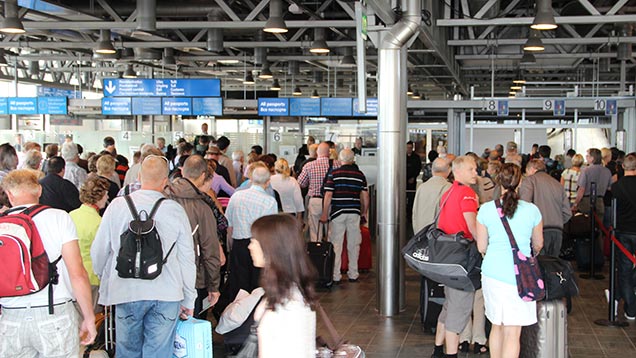Passenger information collected by air carriers to be utilised more extensively in crime prevention

The EU Passenger Name Record Directive, also known as the PNR Directive, enables a wider utilisation of passenger information collected by air carriers in the prevention of terrorism and other forms of serious crime. The Government submitted a proposal on the implementation of the Directive to Parliament on 19 April. The objective is that the proposed acts will enter into force as soon as possible.
A passenger name record contains information provided by each passenger upon making a reservation. This information includes the name, address and other contact details of a passenger and information on the means of payment, for example.
The Directive obliges air carriers to transfer certain PNR data to the Passenger Information Units established or designated by the Member States for the purpose of preventing terrorism and other forms of serious crime. According to the government proposal, the common criminal intelligence unit of the police, Customs and the Border Guard would function as the Passenger Information Unit in Finland.
The Passenger Information Units will analyse the PNR data in accordance with certain pre-determined criteria and compare them against national and international databases relevant for the prevention of terrorist offences and other serious crime. The objective is to identify persons that may be involved in terrorist offences or other serious offences. If it turns out that further investigations are needed, the Unit submits the data to the competent national authorities, which in Finland would be the police, Customs and the Border Guard. The Passenger Information Unit would preserve the PNR data for five years.
The PNR Directive was adopted in April 2016 and it must be brought into force in the Member States by 25 May 2018.
Inquiries: Jouko Huhtamäki, Ministerial Adviser, tel. +358 295 488 556, jouko.huhtamaki@intermin.fiLinkki toiselle sivustolle